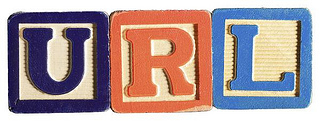 Starting up a new website is an exciting time, but it’s also a time when you need to make some important decisions.
Starting up a new website is an exciting time, but it’s also a time when you need to make some important decisions.
If you’ve ever wondered “what domain name should I pick for my own website?” you’ll know choosing a name is not as easy as it sounds. Should you use your own name, e.g. firstnamelastname.com? Or go with your business name? Or even a name based around keywords because that might have an impact on how easy you are to find on Google? Read on for some pointers.
First, your domain name must be straightforward to spell, type and (if possible) easy to remember too. Many visitors to your site will arrive there by clicking on a link and if so having a domain name that’s easy to spell isn’t that important. But often they’ll read about your website in print or you’ll say it out loud so they can make a note of it. The harder it is to spell or remember, the easier it will be for them to get lost on the way to your site.
Hyphens in domain names also make them harder to remember and type, so these are usually best avoided. For example your ‘virtualassistant.co.uk’ is better than ‘your-virtual-assistant.co.uk’. Also, it’s a pain to say these out loud and write them down correctly, for example “your hyphen virtual hyphen assistant dot co dot uk”. But what if the non-hyphenated version of the domain you want is already taken? It’s still best to avoid the hyphenated one because people could easily forget your hyphens and go to ‘yourvirtualassistant.co.uk’, which means you’re sending them straight to your competitor!
Another common question is whether to go for a domain name with keywords in it or not. Up until a few years ago, there were big benefits to having a keyword-heavy domain name. For example, if you were selling affordable coffee makers, it may have made good sense to buy the domain name ‘cheapcoffeemakers.com’ if people were typing ‘cheap coffee makers’ into Google. So many people created low quality websites based around keywords like this that Google got wise to it and started measuring the value of websites in different ways, meaning that keywords in domain names carry far less weight than they used to. It still makes sense to squeeze a keyword into your domain if you can, but in most cases you need to do far more than this to get on page 1 of Google for that keyword.
The alternative to a keyword-based domain is to pick a name and make it part of your brand. Make your brand memorable and remarkable so people tell their friends and keep coming back for more. A good example is Google itself. The word ‘Google’ is really just a made-up nonsense word. But now everyone knows it’s the biggest search engine in the world and probably uses it multiple times a day.
So what about choosing between ‘.com’, ‘.co.uk’, ‘.biz’, ‘.net’ or any of the other letters you could pick for the end of your domain name? These are known as top level domains (TLDs). Often you’ll find the ‘.com’ version of the domain you want is already taken so what’s the best alternative? In terms of SEO (search engine optimization), choosing a domain that ends in ‘.co.uk’ is perfectly OK if you live in the UK. The situation is the same with ‘.au’ for Australia. So it’s not a problem if the ‘.com’ is already taken from this point of view. In fact if you’ve got a business where all your clients live close to your business such as a bricks and mortar shop in London UK, it would make more sense to have a domain that ends in .co.uk.
Opinions vary on the other TLDs such as .net, .info and .biz . Some of them had a bad reputation as they were used by spammers in the past, but this seems to have improved in recent years. Generally you’re better off with the .com or the TLD for your country (e.g. .co.uk) if those are available. If you’re thinking of buying a domain like .biz, .info or .net, ask your clients or prospective clients what impression it gives them. Would they buy from a .biz website? Also, keep in mind that visitors would expect a .biz site to be a business and a .info site to be providing information. It’s wise to make sure your domain meets your visitors expectations.
Photo credit: samazgor
